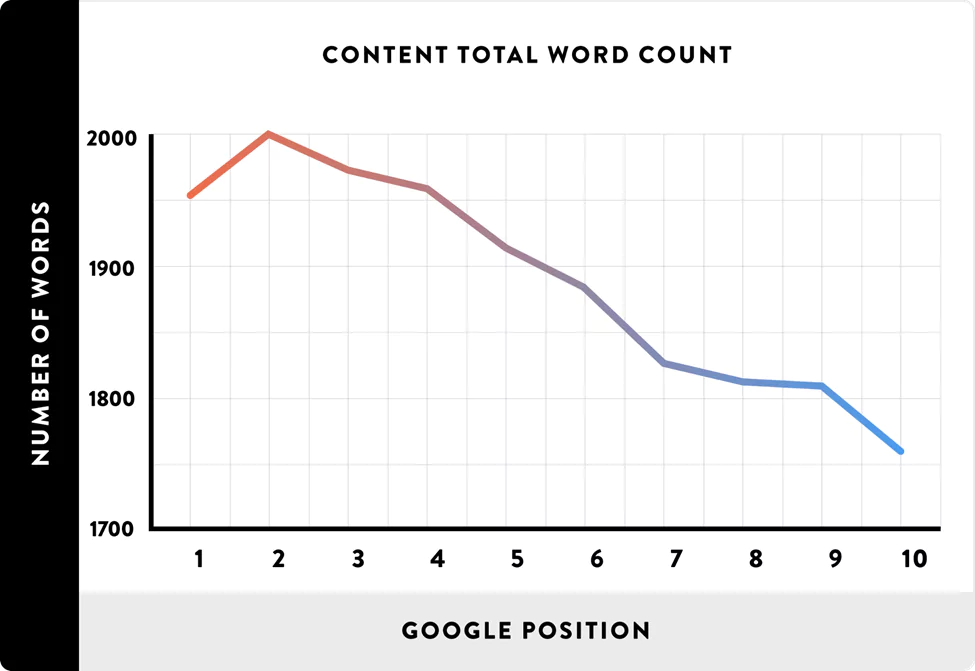The Blogging Dilemma: How Often Should You Blog for SEO?
Author: Team WH
Published On: 16-06-23
Last Updated on: 30-10-23
Estimated reading time: 6 minutes
As marketers try to leverage blog marketing, you may wonder if this would mean spending countless hours preparing content. It leads to the question of how often should you blog for SEO.
You are in the right place if you are searching for the right blog post frequency. To help you up your SEO game, here is everything you need to know about the ideal blogging frequency.
Do Blog Posts Increase SEO?
You might wonder why blogs are important for SEO, anyway.
Well, regular posting of blogs can help search engines find new information to display consistently. Besides, these navigators constantly rank websites that provide updated and relevant information.
And if you have abruptly stopped blogging, this may significantly impact your site’s ranking and relevance. Search engines may mark your blog as stale and start decreasing its ranking.
But it’s not always about the frequency of posting. The key lies in posting value-adding content that intrigues readers. So, if your marketing strategy involves posting low-quality blogs frequently, you should reconsider.
Consistent blogging can increase ranking, but low-quality blog content can hurt your site. But what exactly is ‘consistent’ in terms of blogging?
This brings us back to our initial question: how often should you blog for SEO?
How Often to Blog Post for SEO?
A balance between quality posts and a posting schedule can help you get the desired spotlight. The frequency mustn’t overburden you and neither overwhelm your readers.
This means that if you are posting daily, you may be drowning your readers in information. Besides, if you individually manage your blogs, churning out quality posts every single day may be tiring.
Another factor that one must consider is their audience. You must research and analyse their preferences and online behaviour. Consider experimenting with your blog posts to determine what appeals the most to your users.
Further, an excellent way to determine the right blogging schedule is by conducting a competitive analysis. Start with listing your competitors, exploring their blogs and analysing how often they post. Ensure you also check for their writing style, quality and engagement on their post.
Now coming to the general number for the right blogging frequency, let’s consider a study by Hubspot.
The report provides an ideal frequency for gaining organic traffic and brand awareness.
Organic Traffic
- Small blogs: 3 to 4 blog posts a week
- Large blogs: 4 to 5 times a week
Brand Awareness
- Small posts: 1 to 2 new blogs a week.
- Large posts: 3 to 4 new and updated blogs a week.
With all these aspects in place and proper planning, you can witness a significant rise in your rankings and organic traffic. Make sure that you stick to your plan of execution.
Your Ultimate B2B Blogging Resource: 120+ Ideas for Explosive Growth!
How Long Should Blogs Be for SEO?

The length of a blog can impact organic traffic and be a deciding factor for your SERP rankings. However, it is correlated to the quality of the content as well. Research suggests that longer blogs with 2250-2500 words attract the highest traffic. But that does not mean you can use redundant information to increase the blog’s length.
The ideal blog length for SEO also depends on the type of content presented in the blog. For example, 400-600 words is the optimal length for announcement articles, whereas an informational piece could be around 1000-1500 words. It is essential to follow these three steps to decide the optimal length while writing a blog for SEO purposes.
- Establish the goal of the blog post: Lead generation, higher SERP rankings, getting social shares, etc.
- Identify your readers: Long, comprehensive and detailed blogs will work if you are writing for experts. A concise piece with the key information would be ideal for an audience with a time crunch.
- Determine the search intent: Search intent can be navigational, informational, transactional, or commercial; your content must align with the audience’s intent.
How to Get Your Blogs Noticed?

While creating great content is essential for your blog to be successful, it is not enough. You need to put in some extra effort to help people reach your content.
Attracting readers to your content is not simple, but there are several ways to do it correctly to make them notice your blogs.
Keyword Research
To get people to read your blogs, providing the content they are looking for is essential. Keyword research helps you know the questions trending in your niche and answer them to get your blogs noticed.
Promote Your Blogs Through Emails
It is an excellent way to get direct traffic for your blogs. But to boost your outreach, you need to grow your email list. One way you can do this is by including a ‘subscribe now’ CTA button in your content or as a pop-up when the reader leaves the page.
Invest Efforts in Guest Blogging
Writing guest posts for authoritative websites from your industry can help you gain exposure among new audiences. Determine your niche and look for websites that are relevant in that area and generate traffic. Review their content guidelines and write good quality content per their requirements to get published.
Get the Audience’s Attention with Social Media
Share blog links on social platforms like Facebook, LinkedIn, Twitter, etc. Engage with people through online forums to showcase your knowledge in a specific niche. But most importantly, choose platforms to help you reach your ideal readers. For instance, if you are writing B2B blogs, LinkedIn will be a better choice than Facebook.
Use Meta Details to Improve SEO Rankings
Meta details are a significant part of technical SEO and can help you rank on SERPs. Writing meta titles and descriptions carefully is important, considering you only have up to 55 and 160 characters, respectively.
Conclusion
While knowing how often should you blog for SEO is likely to give your website the competitive edge it needs, there are also other factors at play. Google’s ranking procedure also considers aspects like algorithm updates, competition and niche, website authority, and backlinks.
So besides crafting quality user-centric blogs, ensure you earn quality backlinks and optimise your site for better ranking. Understand that the key to SEO lies not in flooding your blog with posts but in staying relevant to your readers.
Frequently Asked Questions
1. Does blog posting frequency affect SEO?
Yes. Regularly posting blogs can provide search engines with fresh content and highlight your site’s activeness. Besides, you can also target diverse keywords by posting consistently.
2. Can I post blogs too frequently?
While there is no correct answer, one must consider that too much posting can dilute the value of your content. This can decrease user engagement, deter quality, and lower SEO rankings.
3. Is there an ideal day or time of the week to publish blog posts?
The best way to determine this is through experimentation. Try posting your blogs at different times and check for stats. You can also research your competitor’s posting schedule.
4. Do short blog posts hurt SEO?
While short blog posts do not necessarily affect SEO, research suggests that lengthier blog posts have higher ranking potential. The blog post should be at least 300 words to improve SEO.
5. Why does my blog have no views?
Being inconsistent in posting and not promoting your blogs well are two major reasons your blogs are not getting views. Additionally, not following a cohesive theme and not including attractive images can reduce the chances of getting views.
6. Are FAQs good for SEO?
Yes, including FAQs in your blogs can significantly increase SEO rankings. Readers like short answers that offer valuable information, which is the actual purpose of SEO. Moreover, FAQs offer a great place to incorporate relevant keywords naturally for better ranking.























































































































